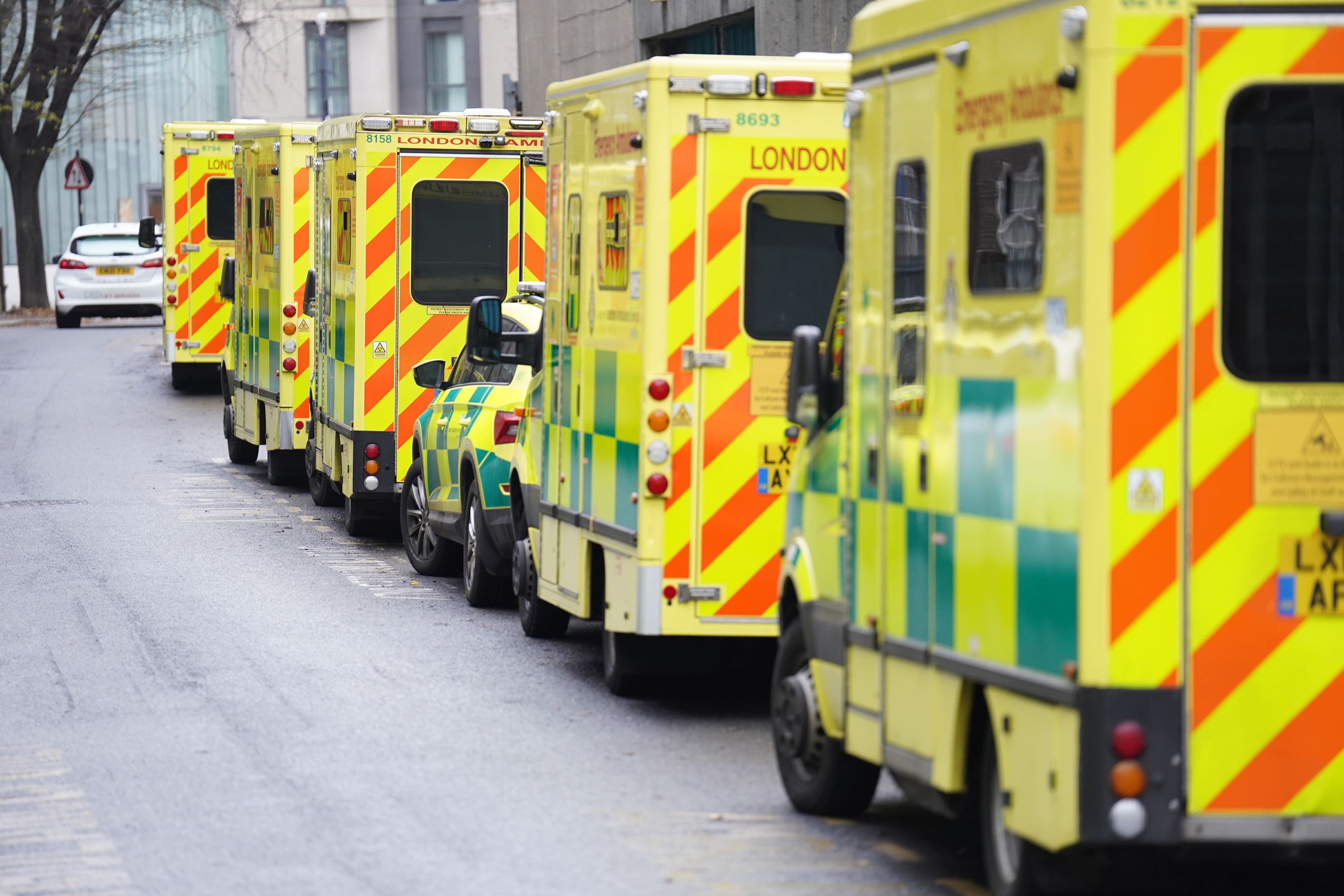Ambulances stuck in hospital queues ‘lost’ almost two million hours last year
The number of handover delays over an hour were almost 13 times higher in December 2022 compared to December 2012.

Your support helps us to tell the story
From reproductive rights to climate change to Big Tech, The Independent is on the ground when the story is developing. Whether it's investigating the financials of Elon Musk's pro-Trump PAC or producing our latest documentary, 'The A Word', which shines a light on the American women fighting for reproductive rights, we know how important it is to parse out the facts from the messaging.
At such a critical moment in US history, we need reporters on the ground. Your donation allows us to keep sending journalists to speak to both sides of the story.
The Independent is trusted by Americans across the entire political spectrum. And unlike many other quality news outlets, we choose not to lock Americans out of our reporting and analysis with paywalls. We believe quality journalism should be available to everyone, paid for by those who can afford it.
Your support makes all the difference.Ambulance crews “lost” nearly two million hours while waiting to hand over patients to A&E staff in England last year, according to a new report.
Patients arriving at an emergency department via ambulance should be handed over to the care of emergency department staff within 15 minutes, according to national guidance.
But the Association of Ambulance Chief Executives (AACE) said that in the 12 months to March 2023, nearly two million hours were lost due to delays exceeding the 15-minute target.
In December 2022 three quarters of handovers exceeded the 15-minute target, it said.
A new report by AACE states that in the 12 months to March 2023, some 868,000 hours were lost due to handover delays of an hour or more.
In December 2012 there were an estimated 5,226 handover delays over an hour across England, but in December 2022 there were 66,000, according to the report.
But the Association did say that longer delays “have shown signs of receding” since the start of this financial year but still “remain very high”.
It warned that delays can lead to patient harm and can keep ambulances from getting back out on the road to attend to other emergencies.
The new report states that since 2011 hospital handover delays have “increased steadily”.
The Association said that the upward trend started even before the Covid pandemic but since has “accelerated with numbers reaching unprecedented levels”.
It said that there is wide variation in ambulance handover delays across the country and more must be done to drive up standards in the worst performing hospitals.
A recent report by the Healthcare Safety Investigation Branch (HSIB) warned that handover delays are “causing harm to patients”.
“A patient’s health may deteriorate while they are waiting to be seen by emergency department staff, or they may be harmed because they are not able to access timely and appropriate treatment,” according to HSIB.
Martin Flaherty, managing director of AACE, said: “We have seen significant improvements in some areas (but) it is clear from the data that we remain in a precarious position.
“There is subsequently no room for complacency and considerable work for us all to continue to do to prevent handover delays.”
Commenting on the report, Saffron Cordery, deputy chief executive at NHS Providers, which represents NHS trusts, said: “Rising handover delays over the last decade are symptomatic of the relentless pressure on the whole health and care system.
“These delays mean that ambulance crews are not always able to respond to 999 calls from critically ill patients. In addition to the direct impact on patients, this is incredibly demoralising, even traumatising, for many staff involved. This is especially concerning as we head into winter, the most challenging time of year for the NHS.
“For trust leaders to be able to continue to make progress in tackling handover delays, we need to see urgent reform of social care and adequate investment in community services.”
An NHS England spokesperson said: “This report focuses on the number of handover delays last winter, which we know was an incredibly challenging period for NHS staff with record demand, a ‘twindemic’ of Covid and flu, industrial action and strains in social care, but as AACE acknowledges the number of delays has fallen since the start of the year alongside substantial improvements in ambulance response times and A&E performance.
“This year we set out our plans for winter earlier than ever before and as part of our urgent and emergency care recovery plan we are rolling out a host of measures to both improve hospital discharge and flow, reduce ambulance handover delays and increase the number of ambulance hours on the road, including 5,000 new beds to boost capacity and reduce waiting times for patients.”